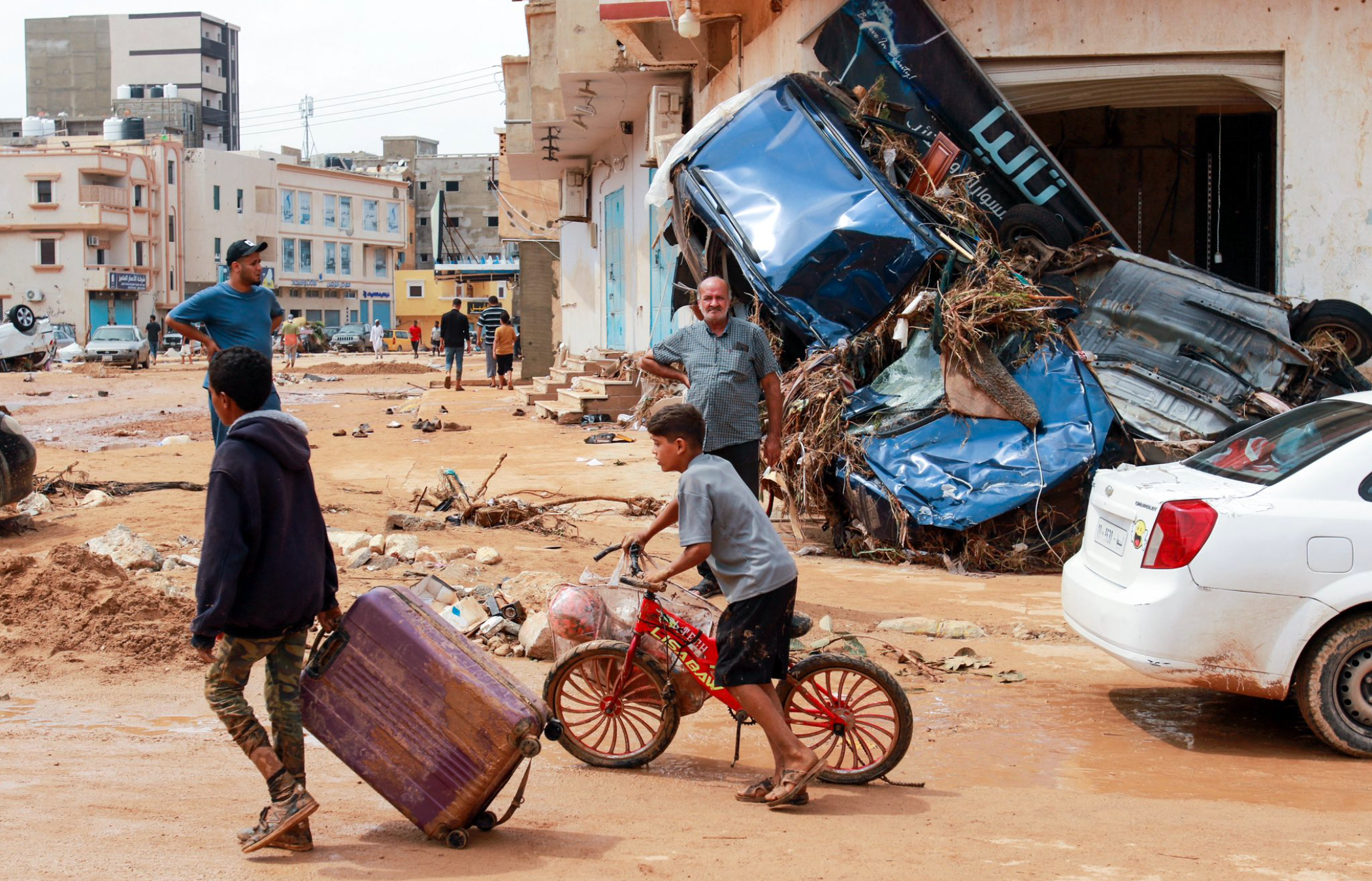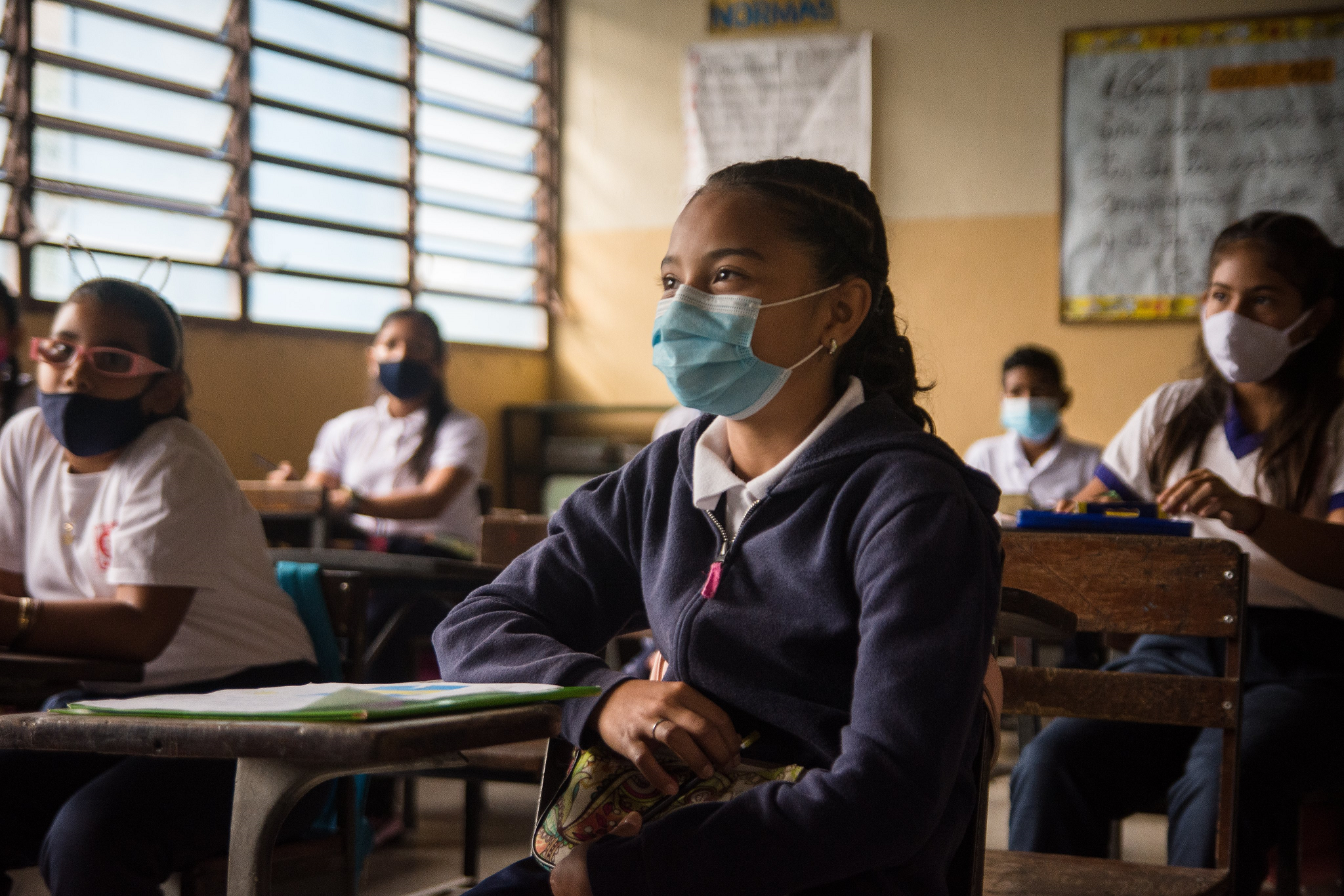Devastating Floods in Libya: Education Cannot Wait and Strategic Partners Appeal to Donors to Scale-Up Education and Protection Response

With 880,000 people directly impacted by the catastrophic climate-induced disaster and over 280 schools badly damaged, ECW unlocks US$2 million in emergency funding to provide vital support as leaders unite behind US$71 million flash appeal.
In response to the catastrophic floods in Libya – which have taken thousands of lives, severely damaged at least 280 schools, and directly impacted over 880,000 people – Education Cannot Wait (ECW) and its strategic partners are racing to deliver a fast-acting response that will provide education and protection to children affected by the cataclysm.
At this year’s United Nations General Assembly and Climate Ambition Summit, ECW called on donors to step up financial support for the United Nations’ US$71.4 million flash appeal, which will reach a quarter of a million people, including over 75,000 people through the education and protection response.
ECW’s new US$2 million First Emergency Response allocation will have a strong focus on establishing temporary learning spaces, rehabilitating damaged schools, and supporting protection, mental health and the well-being of girls and boys whose lives have been ripped apart by the devastating floods.
“The climate crisis is an education crisis. Just like armed conflicts abruptly and brutally disrupt the education of children and youth worldwide, so does the climate crisis. We need to respond now. Their education cannot wait. In Libya, close to 300 schools have been destroyed or damaged by the floods, and many are being used as temporary shelters. Scaling up climate financing means addressing the consequences climate change has on education with urgency, while also ensuring climate adaption and mitigation. This is why we are releasing a First Emergency Response to Libya now,” said Yasmine Sherif, Executive Director of Education Cannot Wait, the United Nations global fund for education in emergencies and protracted crises.
The torrential rains from Storm Daniel caused two dams to collapse and resulted in devastating flash flooding across Northeastern Libya on 10 September. Early analysis indicates this climate-induced catastrophe is further compounding Libya’s complex crisis and will have impacts across all sectors of Libyan society.
The Flash Appeal reflects the commitment of all donors and strategic partners to prioritize immediate lifesaving assistance for the most vulnerable people – including shelter, health, food, water, sanitation, protection and education. The aim is to provide an integrated, multi-sectoral response to comprehensively assist families impacted by the storm, including through the Rapid Response Mechanism. The aftermath of the storm presents significant health risks, especially for vulnerable groups such as displaced individuals and migrants, and there are concerns over expected increases in rainfall during the upcoming wet season.
The climate crisis is severally impeding progress toward the Sustainable Development Goals, triggering spikes in conflict, displacement and hunger, and unravelling efforts to ensure education for all by 2030. Recent analysis from the United Kingdom’s Foreign, Commonwealth and Development Office indicates that extreme weather events are impacting the education of nearly 40 million children every year.
ECW is scaling up its education responses to the climate crisis. Recent allocations include First Emergency Responses announced last year in response to the historical drought in the Horn of Africa and the floods in Pakistan. ECW is also working with partners to further integrate disaster risk reduction and climate-resilience into ECW-supported programmes, which have already reached close to 9 million crisis-impacted children and adolescents with quality, inclusive education.
Note to Editors
About Education Cannot Wait (ECW):
Education Cannot Wait (ECW) is the United Nations global fund for education in emergencies and protracted crises. We support quality education outcomes for refugee, internally displaced and other crisis-affected girls and boys, so no one is left behind. ECW works through the multilateral system to both increase the speed of responses in crises and connect immediate relief and longer-term interventions through multi-year programming. ECW works in close partnership with governments, public and private donors, UN agencies, civil society organizations, and other humanitarian and development aid actors to increase efficiencies and end siloed responses. ECW urgently appeals to public and private sector donors for expanded support to reach even more vulnerable children and youth.
On Twitter, please follow: @EduCannotWait @YasmineSherif1 @KentPage
Additional information available at: www.educationcannotwait.org
For press inquiries:
Anouk Desgroseilliers, adesgroseilliers@un-ecw.org, +1-917-640-6820
Kent Page, kpage@unicef.org, +1-917-302-1735
For other inquiries: info@un-ecw.org
For Press Inquiries:
Anouk Desgroseilliers:
adesgroseilliers@un-ecw.org
+1-917-640-6820
Kent Page:
kpage@unicef.org
+1-917-302-1735

